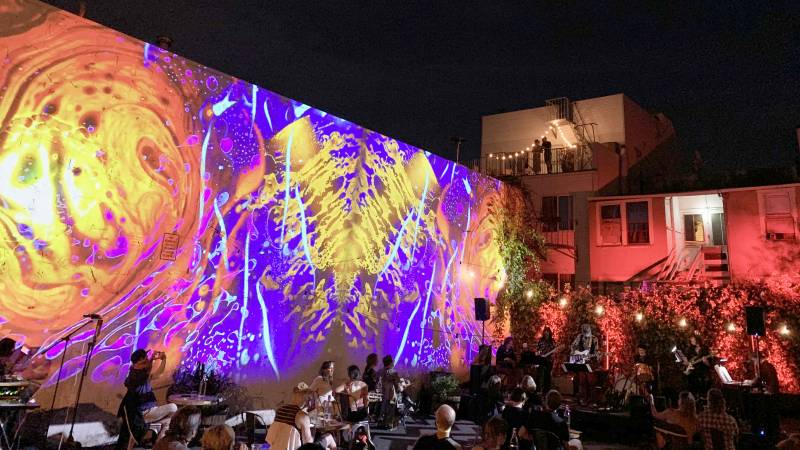San Francisco’s live music scene has technically been on pause since the start of shelter-in-place orders in March, but unofficial concerts and DJ sets have popped up all over the city in parks, beaches and street corners.
Over the past several weeks, musicians, theater artists and event presenters have asked local government to allow for socially distanced, outdoor performances, arguing that regulated shows would be safer than guerilla-style ones with no rules or guidelines. Not to mention it would provide an economic boost for an industry that’s completely ground to a halt during the pandemic, during which many artists and businesses haven’t qualified for government aid.
Today, Mayor London Breed’s office announced a new permit through the Entertainment Commission that aims to allow live, outdoor music and entertainment on a small scale. The JAM (Just Add Music) permit offers businesses a way to book DJs, live music (without singing or wind instruments), dance, theater, comedy or film screenings with amplified sound in the city’s existing Shared Spaces locations. Those include outdoor dining areas, farmers’ markets, outdoor fitness classes and drive-in theaters that operate in accordance to the city’s social distancing rules, mask mandate and other public health guidelines.
The new permit, whose application is now live, marks the first time San Francisco is formally incorporating live entertainment into the current phase of its reopening plan. With the free permit, restaurants can book DJs in their patios and parklets while avoiding the fees and lengthy, bureaucratic process they would have had to undertake to allow ongoing entertainment or one-time special events before COVID-19. And, perhaps more crucially, music venues and theaters whose income streams have halted now have a pathway to resuming live events.


